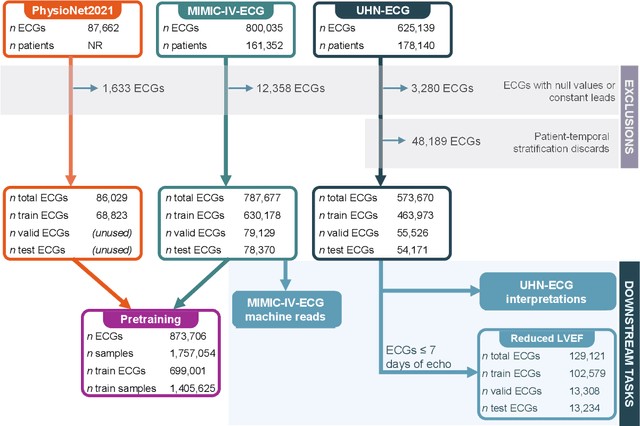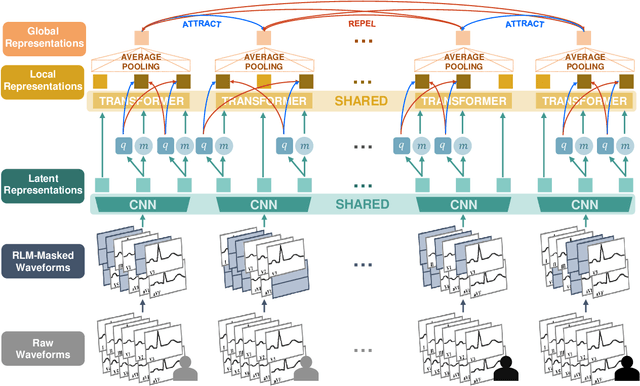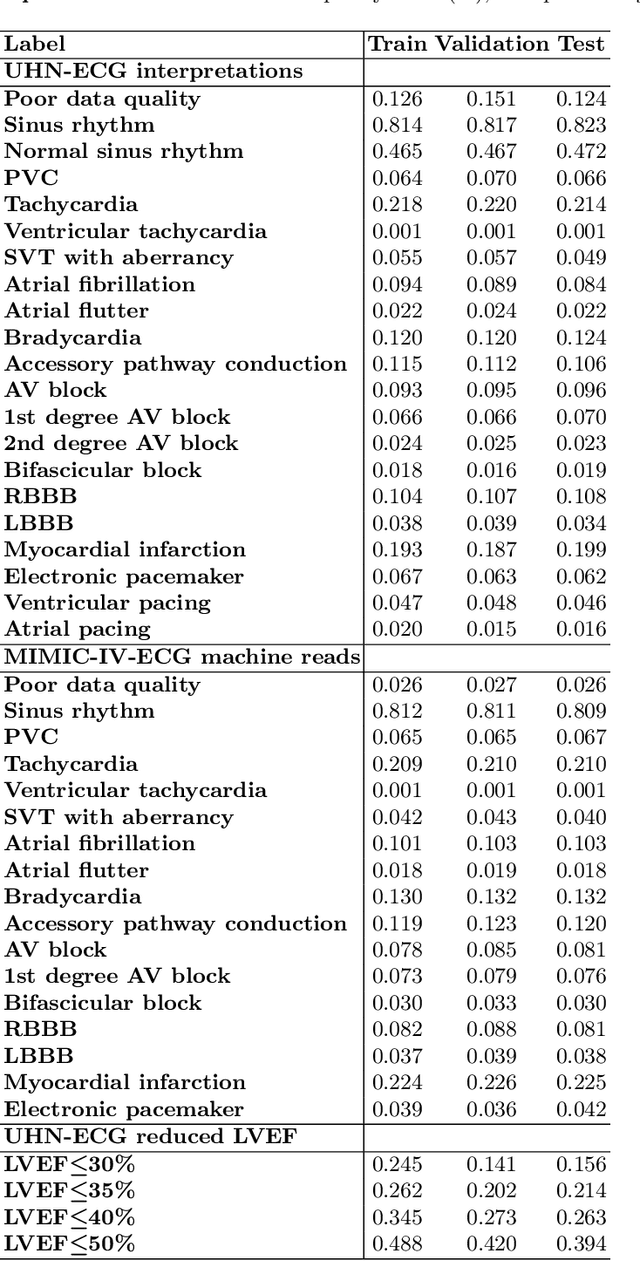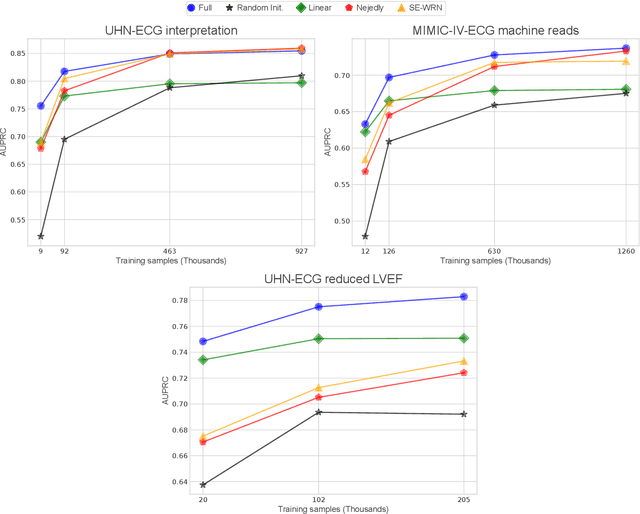Sameer Masood
ECG-FM: An Open Electrocardiogram Foundation Model
Aug 09, 2024



Abstract:The electrocardiogram (ECG) is a ubiquitous diagnostic test. Conventional task-specific ECG analysis models require large numbers of expensive ECG annotations or associated labels to train. Transfer learning techniques have been shown to improve generalization and reduce reliance on labeled data. We present ECG-FM, an open foundation model for ECG analysis, and conduct a comprehensive study performed on a dataset of 1.66 million ECGs sourced from both publicly available and private institutional sources. ECG-FM adopts a transformer-based architecture and is pretrained on 2.5 million samples using ECG-specific augmentations and contrastive learning, as well as a continuous signal masking objective. Our transparent evaluation includes a diverse range of downstream tasks, where we predict ECG interpretation labels, reduced left ventricular ejection fraction, and abnormal cardiac troponin. Affirming ECG-FM's effectiveness as a foundation model, we demonstrate how its command of contextual information results in strong performance, rich pretrained embeddings, and reliable interpretability. Due to a lack of open-weight practices, we highlight how ECG analysis is lagging behind other medical machine learning subfields in terms of foundation model adoption. Our code is available at https://github.com/bowang-lab/ECG-FM/.
 Add to Chrome
Add to Chrome Add to Firefox
Add to Firefox Add to Edge
Add to Edge